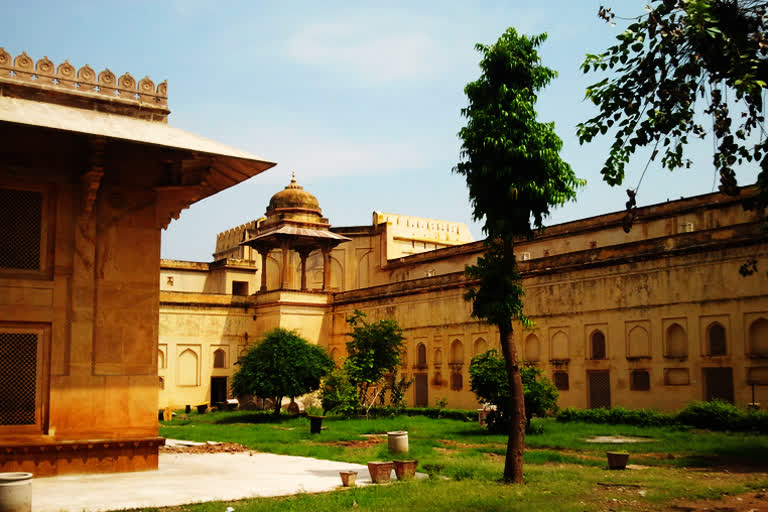Ajmer (Rajasthan): The Ajmer Fort built during the reign of Mughal emperor Akbar was a witness to perhaps one of the most decisive meetings which changed the history of India forever. English diplomat Thomas Roe met Emperor Jahangir to discuss the establishment of a trade treaty between Britain and the erstwhile Mughal Empire. The trade treaty discussion at Ajmer fort subsequently gave exclusive rights to the British to set up factories in Surat and other parts of India. However, what started at the Ajmer Fort stopped only after over 200 years of enslavement of the Indian subcontinent by the East India Company.
After the signing of the agreement, the East India Company slowly spread its tentacles all over the country.
After the Chauhan dynasty, Rajputs, Mughals, Marathas, and the British ruled over Ajmer. This fort has also been a witness to many historical events. Akbar had supervised the Haldighati war from this fort and it was from here he sent his trusted general Man Singh to war.
Also Read: Karnataka family hoisting same national flag since 1947
Ajmer also saw many revolutions in North India. Great patriots like Mahatma Gandhi, Arjun Lal Sethi, Chandrashekhar Azad have visited Ajmer fort many times.
Many important events too were held here. Ajmer fort was witness to the historic occasion of India receiving Independence from the British. On August 14, 1947, independence was announced at 12 o'clock midnight. The then-president of Indian National Congress Jitmal Luniya celebrated the new-found freedom at Ajmer Fort by lowering the British flag and hoisting the Tricolour in front of hundreds of countrymen.
The Rajputanas found controlling Rajasthan easier from Ajmer. This was the main reason that Ajmer was the first choice of not only the Mughals but also the British. Ajmer was also a stronghold of revolutionaries in the freedom movement.
Also Read: 75 years of Independence: Most important freedom movements in India



